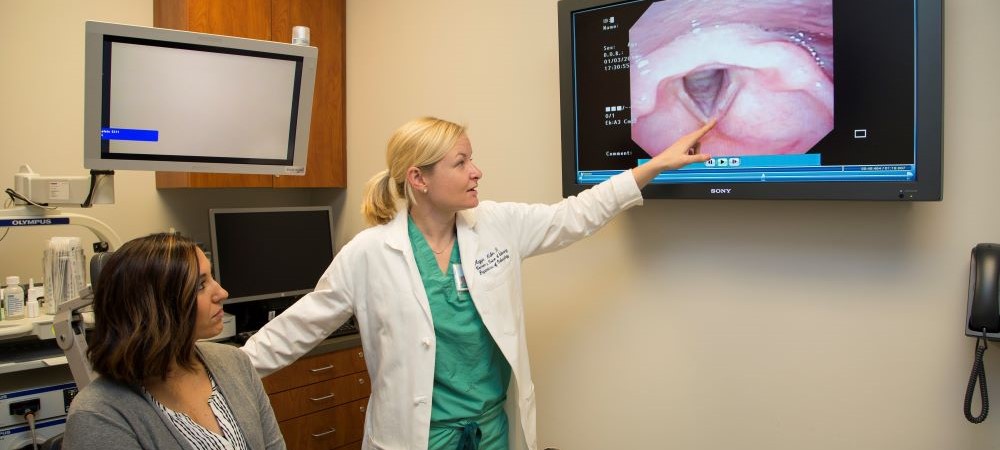How to Schedule a Hearing Test with a Certified Hearing Professional
How to Schedule a Hearing Test with a Certified Hearing Professional
Blog Article
Exploring the Area of Otolaryngology: What to Anticipate When You Speak With an ENT
Otolaryngology, commonly referred to as ENT, encompasses the diagnosis and treatment of ear, throat, and nose disorders. For those experiencing related problems, seeking advice from an ENT expert can supply clearness and alleviation. Comprehending what to expect throughout such examinations is crucial for efficient communication and treatment. This review will describe essential elements of the ENT experience, including common factors for visits and the processes associated with medical diagnosis and therapy.

Understanding Otolaryngology: A Review
Otolaryngology, commonly referred to as ENT (Nose, throat, and ear) medication, is a customized branch of medication that concentrates on the diagnosis and treatment of problems impacting these vital locations of the human body. This field includes a large range of conditions, including those related to hearing, equilibrium, breathing feature, and speech. Otolaryngologists are trained to manage both medical and clinical therapies, using sophisticated techniques and technologies. Their competence prolongs past standard conditions, resolving issues such as allergies, sinus infections, and hearing loss. Furthermore, they play a crucial role in the monitoring of head and neck cancers cells, providing comprehensive treatment tailored to specific patient needs. Overall, otolaryngology stays important for maintaining wellness and lifestyle in affected people.
Typical Reasons to See an ENT Professional
Many individuals look for the knowledge of an ENT specialist for a range of reasons, mirroring the diverse nature of conditions that influence the nose, ear, and throat. Typical problems include persistent sinus problems, which frequently causes consistent nasal congestion and face pain. Allergic reactions and their linked signs and symptoms, such as sneezing and itching, additionally trigger sees to these specialists (ENT Doctor). Hearing loss, whether gradual or abrupt, is one more substantial factor for examination. On top of that, people might look for evaluation for throat conditions, consisting of relentless hoarseness or swallowing difficulties. Rest apnea, characterized by cut off breathing throughout rest, is often dealt with by ENT specialists. Each of these conditions highlights the significance of specialized care in taking care of intricate ENT-related health concerns
Planning for Your ENT Visit
When getting ready for an ENT appointment, it is necessary to gather relevant info and take into consideration any specific issues. Clients ought to put together a thorough case history, including previous ear, nose, or throat problems, surgical procedures, and existing medications. Documenting symptoms-- such as extent, regularity, and duration-- can offer beneficial understandings for the ENT professional. In addition, people must prepare a listing of concerns they want to ask, making sure that all worries are resolved throughout the see. Bringing along any kind of pertinent medical records or test results can further assist the ENT in comprehending the individual's problem. Patients need to validate their visit details, consisting of place, time, and date, to decrease any kind of final complication. Correct preparation can improve the efficiency of the assessment and result in much better outcomes.
What to Anticipate Throughout the Assessment
As the appointment starts, the patient can anticipate to participate in a complete discussion with the ENT specialist regarding their signs and case history. The specialist will certainly ask about the period, regularity, and seriousness of signs and symptoms such as hearing loss, nasal congestion, or sore throat. Furthermore, the client's previous medical conditions, medications, and any type of appropriate family members history will certainly be examined, assisting the specialist in forming a complete understanding of the individual's wellness. The ENT might also ask about lifestyle variables, such as direct exposure to irritants or toxic irritants. This open dialogue develops a foundation for the appointment, making sure that the client's problems are attended to and establishing the stage for any necessary evaluations or suggestions for therapy.
Diagnostic Tests and Treatments in Otolaryngology
A series of diagnostic tests and treatments are essential in otolaryngology to accurately examine and detect conditions affecting the ear, nose, and throat. Usual examinations include audiometry, which measures hearing feature, and tympanometry, examining center ear pressure. Nasal endoscopy allows visualization of the nasal flows and sinuses, while laryngoscopy takes a look at the throat and vocal cables. Imaging techniques, such as CT scans and MRIs, provide detailed views of head and neck frameworks. Allergic reaction screening may likewise be carried out to recognize triggers for sinus or respiratory concerns. These diagnostic devices enable ENT specialists to create a thorough understanding of people' conditions, making certain tailored and efficient management plans. Correct medical diagnosis is essential for successful treatment end results in otolaryngology.
Therapy Alternatives Offered by ENT Specialists
ENT specialists offer a range of treatment options customized to address specific problems affecting the nose, throat, and ear. These treatments range from traditional methods, such as medicine and lifestyle modifications, to even more invasive procedures. Allergies might be handled with antihistamines or immunotherapy, while persistent sinus problems might call for nasal corticosteroids or sinus surgery. For hearing loss, ENT specialists typically recommend listening devices or surgical treatments like cochlear implants. In instances of throat conditions, alternatives can include speech treatment or operations to get rid of obstructions. Furthermore, they might provide support for handling rest apnea, including making use of CPAP devices or medical interventions. On the whole, the objective is to improve individuals' quality of life with personalized care and efficient treatment approaches.
When to Look For Follow-Up Care With an ENT
When to seek follow-up care with an ENT professional is crucial for managing recurring signs and symptoms or problems connected to ear, throat, and nose problems, recognizing. Patients ought to consider arranging a follow-up consultation if signs and symptoms linger in spite of first treatment, such as persistent ear pain, nasal blockage, or throat pain. Changes in hearing, balance concerns, or uncommon nasal discharge may likewise necessitate more evaluation. Furthermore, if a patient experiences negative effects from suggested drugs or has actually undergone a surgical procedure, follow-up care is essential to check healing and deal with any type of problems. Timely appointments can visite site ensure effective management of conditions, prevent possible complications, and give assurance concerning one's health and wellness. Looking for follow-up care promotes positive health management in otolaryngology.
Regularly Asked Inquiries

What Qualifications Should I Seek in an ENT Specialist?
When looking for an ENT professional, one should look for board accreditation, appropriate experience, and solid patient testimonials. Furthermore, efficient interaction skills and a caring strategy can significantly enhance the overall treatment experience.
Just how Do I Pick the Right ENT for My Demands?
Selecting the right ENT professional involves assessing their certifications, experience, and patient testimonials (ENT surgery). It is important to ponder their interaction design and technique to therapy, ensuring they align with the person's certain wellness requirements and choices
Exist Any Kind Of Dangers Connected With ENT Procedures?
The risks connected with ENT treatments might consist of infection, bleeding, anesthesia difficulties, and prospective damage to surrounding structures. Patients need to check my blog discuss these threats with their medical professional to recognize specific issues and guarantee notified choices.
How Can I Take Care Of Anxiety Prior To My ENT Visit?
To handle stress and anxiety prior to an appointment, people can exercise deep breathing workouts, visualize favorable end results, prepare inquiries ahead of time, and look for assistance from good friends or family, fostering a sense of confidence and peace.
What Should I Do if I Experience Adverse Effects From Therapy?
If adverse effects from treatment occur, the person needs to immediately report them to Learn More Here their health care service provider. Changes to therapy or added interventions may be essential to assure security and effectiveness in handling their condition - ENT Clinic. As the appointment starts, the client can expect to involve in a comprehensive discussion with the ENT professional regarding their signs and symptoms and clinical background. These analysis tools enable ENT experts to create a thorough understanding of patients' problems, making sure customized and reliable management plans. ENT experts supply a variety of therapy choices customized to deal with certain conditions influencing the throat, nose, and ear. When looking for an ENT professional, one ought to look for board certification, pertinent experience, and solid individual reviews. Choosing the ideal ENT expert includes evaluating their certifications, experience, and client evaluations
Report this page